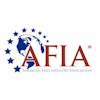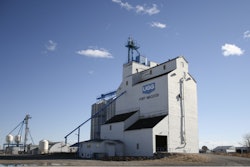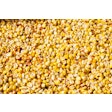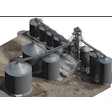The 117th edition of the National Grain and Feed Association’s (NGFA) Annual Convention, held in San Francisco in mid-March, drove this sentiment home in its general sessions: While agriculture is one of the greatest growth industries, the coming years will be filled with the unique challenge of restoring the public’s trust in the food system. For those working and living agriculture, it should come as no surprise that much of the content presented by the event’s diverse set of speakers focused on the anti-biotechnology battle being waged in this country — specifically the one against genetically modified (GM) grains and food stuffs.
GMOLargely driven by emotion and misinformation, the vitriolic arguments presented by biotech’s opponents run contrary to the extensive scientific research backing the legitimacy and safety of GM foods. Why then does this movement have such momentum? According to Chris Policinski, Land O’Lakes president and CEO, agriculture has failed to manage the public’s opinions on the food supply by not effectively telling its productivity story, the one only made possible through the use of biotechnology.
Let’s face it, the public has been conditioned to be suspicious of big business (often rightfully so) — and agriculture surely is not exempt from this scrutiny. Big is bad — and consumers intrinsically question whether or not greed-driven corporations (and politicians) have their interests and well-being in mind.
California’s Proposition 37 (also known as “The California Right to Know Genetically Engineered Food Act”) highlights this movement. The statute would have called for the mandatory labeling of genetically modified consumer food products. While Prop 37 was defeated during the 2012 election by a narrow margin, the push certainly didn’t end in California. In fact, a number of U.S. states have proposed legislation and pending ballot initiatives in motion.
Do consumers deserve to know where their food comes from and how it is sourced? Absolutely. Should the industry be more transparent? I think so. The tide has shifted, perhaps it’s time the industry takes the initiative and addresses the matter on its own terms.
Earlier this month, Whole Foods became the first major retailer requiring products containing genetically modified organisms (GMO) to be labeled by 2018 — and, in time, other major retailers are likely to follow suit. Not knowing where the consumer’s interest in the supply chain will end, grain handling and feed manufacturing industries should keep a keen eye on this issue because we are, after all, ultimately one industry.
Policinski urges individuals and agribusinesses to actively engage with the public in real time via social media and that they reach out to their local and state politicians to tell the story about an industry revving up to feed a growing global population.
What are you doing to tell our story?











